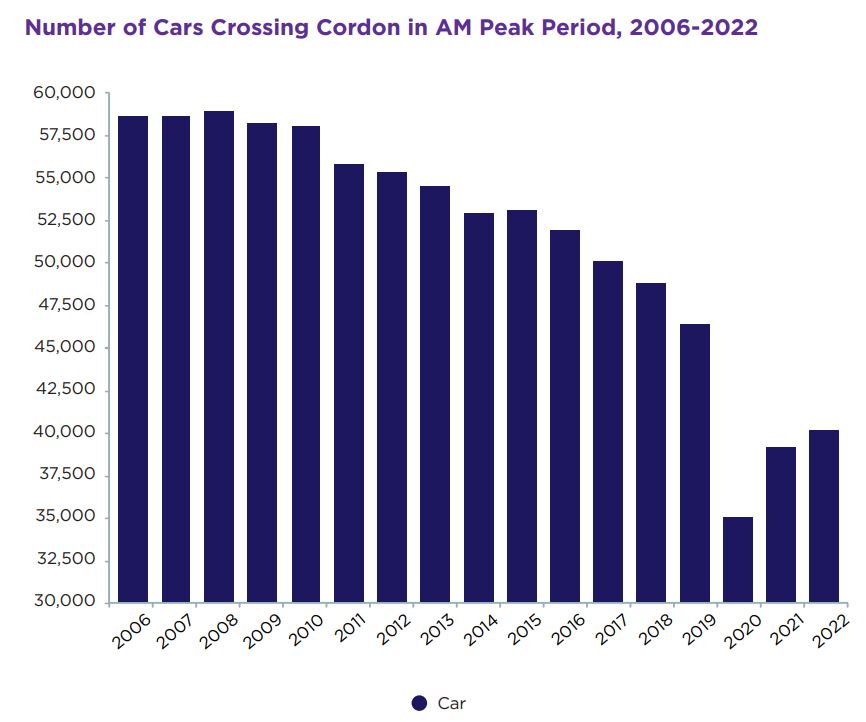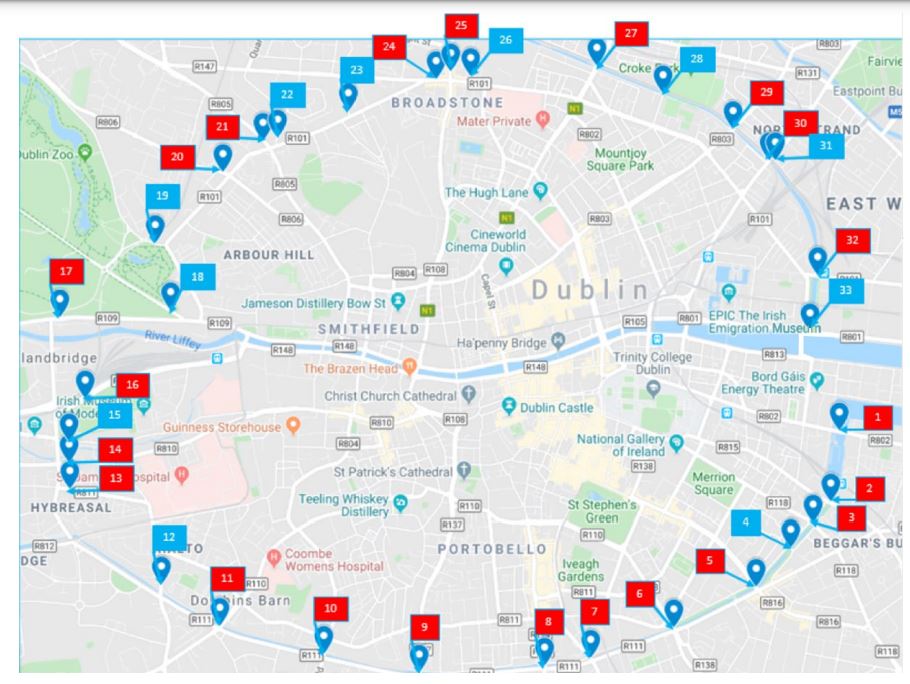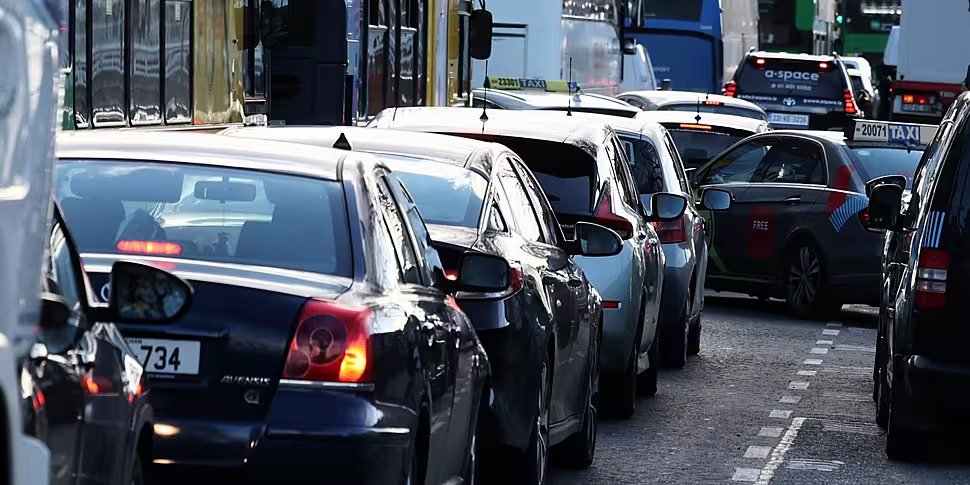A proposal to cut the number of cars driving through Dublin city centre would have a 'huge impact' on the capital's economic well-being.
That's according to Keith Gavin, Chairperson of the Irish Parking Association, who was reacting to a new traffic management plan which would run to 2028.
The draft plan would see more cars go around the city rather than through it.
He told Newstalk Breakfast it is not fair to compare Dublin to other European capital cities.
"Other cities have proper public transport and have Metros," he said.
"In Dublin we don't have that unfortunately.
"The number of cars going into the city centre has dropped by 30% in the last 10 years.
"This new plan aims to reduce it by a further 20% - that is going to have a huge impact on the economic well-being of the city centre".
Mr Gavin claimed the ban on cars travelling through College Green, known as the Bus Gate, "reduced the footfall in the Grafton Street area by a third".
"These measures that are being pursued, from an ideological point of view, as anti-car measures, are having a serious impact on the city centre," he said.
 Number of cars crossing the Canal Cordon in Dublin city since 2006. Source: National Transport Authority
Number of cars crossing the Canal Cordon in Dublin city since 2006. Source: National Transport AuthorityIt comes as new data shows there has been a continuing decrease in the number of cars crossing into the city.
A measure of the so-called 'Canal Cordon' - 33 locations where data is collected annually on the movement of people in the AM peak period between 7am and 10am - shows the number of cars crossing the cordon dropped from 46,388 to 40,207 between 2019 and 2022.
 The 33 locations where data is collected that make up the Canal Cordon in Dublin. Source: National Transport Authority
The 33 locations where data is collected that make up the Canal Cordon in Dublin. Source: National Transport AuthorityThe number of buses crossing the cordon also dropped from 1,852 to 1,642, as did the number of pedestrians and cyclists.
Taxis made up 6.12% of all cars crossing the cordon in 2006 - this increased to 8.47% in 2019.
Lynn Boylan, Sinn Féin Senator and Climate Justice Spokesperson, said this new plan would be a win-win.
"Whenever you have these conversations, people will immediately text in and say, 'I need my car'...those people should be shouting the loudest for actually reducing the number of cars on the road," she said.
"The less people who are driving, and who are using cycling or public transport, it means traffic flows much quicker for those who do have to use their cars.
"So this is a win-win for everybody".
'Out-of-town destinations'
Senator Boylan said studies from a number of cities, including those in "very car-centric" North America, show more people are actually walking to spend money.
"Every study that's been carried out in cities... shows that what happens is traders and retailers have overestimated the number of people who travel by car to their premises," she said.
"In actual fact, 91% of revenue generated is generated by customers who are walking or cycling or taking the bus".
Disputing the veracity of those figures, Mr Gavin said Dublin city is already facing competition with other places for business.
"Dublin city centre is competing with Dundrum, Liffey Valley, The Square - it's competing with these out-of-town destinations.
"These policies that are being pursued, all they're doing is driving people to the out-of-town centres," he added.
Listen back here:









